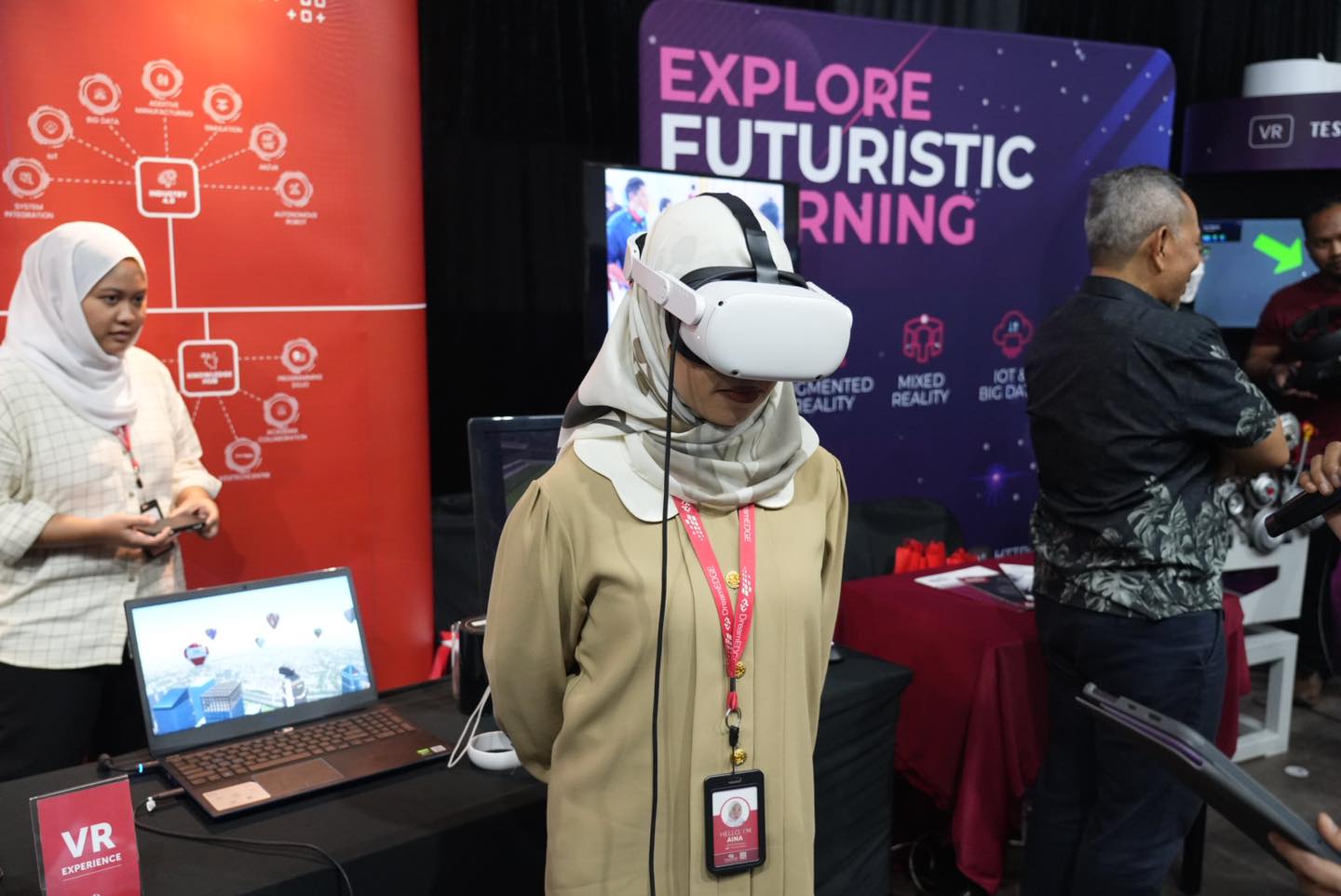

Digitizers in Technical and Vocational Education (TVET) at community colleges are key to empowering students and mobilizing well-being in the vision of “Malaysia MADANI”. Through digital TVET, Community College students will master the latest technology skills relevant to industry needs, preparing them to succeed in an increasingly connected and changing society.
The main problem related to the generation of TVET in Malaysia, especially in community colleges, can be seen in the perception by the community which is to see the perception of the community that is less positive towards TVET education in Malaysia. Many people still have the view that TVET education is a secondary option compared to other formal education such as university education. Former Prime Minister Malaysia Tan Sri Muhyiddin Yassin in his closing speech via video recording at Malaysia’s First Hybrid TVET Education Expo & Summit 2021 (TES2021) Digital Education at the Kuala Lumpur Convention Center stated that TVET is not a second-class study for those who drop out or are less brilliant, on the other hand, skill-based careers offered through TVET studies can promise a good income. Technical Education and Vocational Training (TVET) is also a suitable option for students who are still looking for a future career direction.
The second problem is lack of recognition of TVET qualifications, although TVET qualifications have significant value in providing a skilled workforce, sometimes they are not widely recognized by society and industry. The difference in perception about the quality of TVET education compared to other formal education can affect the acceptance and recognition of TVET graduates in the job market.
However, there are community colleges in Malaysia facing challenges in obtaining adequate resources, whether in terms of facilities, equipment, or qualified teaching staff. This can affect the quality and sustainability of the TVET program as well as reduce the attractiveness for prospective students.
In addressing the problems found in the branding of TVET, the authorities need to play an important role in launching a broad campaign to increase public awareness of the benefits and importance of TVET education. This campaign can include the success stories of TVET graduates, the career benefits offered, as well as the positive contribution of TVET graduates to economic development.
Next, ensure that accurate, up-to-date, and easily accessible information about TVET education is delivered to the community. Using various communication channels, such as social media, websites, brochures, and face-to-face meetings, to explain the advantages and opportunities in TVET education.
In addition, the digitization of TVET at Community Colleges also involves collaboration with industry and the business sector. Students will be involved in industry projects that focus on digital technology applications.
One example of the implementation of TVET digitization at Community College is the use of a comprehensive digital learning platform. Through this platform, students can access learning materials online, including learning videos, interactive modules, and other supporting resources. This platform also allows students to interact with lecturers and fellow students through discussion forums or chat rooms, especially community colleges that offer programs in IT and technology.
The learning application can also be equipped with evaluation features, such as online tasks and simulation tests. Students can follow assignments or tests online and receive immediate feedback about their performance. This helps students track their progress, identify areas that need improvement, and prepare them for relevant final exams or certifications.
By providing access to virtual learning applications, the one institution of Community College in Borneo is Sarikei Community College are providing a real and deep practicum experience for students in learning course Computer System and Networking. The application helps strengthen conceptual understanding, develop practical skills, and prepare students for the demands of an increasingly digital industry.
The digitization of TVET at Sarikei Community Colleges also includes changes in the evaluation approach and monitoring of student progress. Digital technology can be used to collect data and analysed student achievement, provide effective feedback, and provide personalized learning materials. This helps students to identify their strengths and weaknesses, as well as giving them better guidance in improving their academic performance and employability.
Through the 2022 budget, the government has allocated RM6.6 billion to empower the field of Technical and Vocational Education and Training (TVET) to meet the demands of industrial workers. The RM6.6 billion allocation value is the largest annual allocation value ever given to TVET development in Malaysia. Through an article published in November 2021 by Dr Mohd Azlan Mohammad Hussain (UPSI), according to him, TVET obtained a large allocation because of the important role of this field as one of the catalysts to develop highly skilled talent to meet economic needs and to achieve the goals of a prosperous, inclusive country and sustainable.
To further strengthen the branding of TVET in Malaysia, the authorities should mandate the involvement of successful TVET alumni as ambassadors or spokes persons to share their experiences and inspire the community. They can give their success stories, for example TVET alumni who have achieved success in their careers can share inspiring stories about how TVET education has provided a strong foundation for them. They can talk about their journey, the challenges they faced, and how TVET education helped them achieve success.
At the same time, can directly overcome the negative perceptions that still exist in the community about TVET education. By sharing positive experiences and clear facts, they can change society’s views and prove that TVET education deserves to be respected and taken seriously.
Through this, they can highlight their career achievements, the skills they have developed through TVET education, and the contribution they have made to the industry and society. This will help inspire the community’s inspiration and trust in TVET education as a valuable educational pathway and provide opportunities for success.
Finally, TVET alumni can be a source of motivation and inspiration for prospective students, parents, and the general public. They can show that TVET education is not a bad choice, but a path that brings success and progress.
In a statement by the Prime Minister of Malaysia, Datuk Seri Anwar Ibrahim on the official website of the Malaysian Prime Minister’s Office on February 2. 2023, he suggested that the involvement and cooperation of the private sector and government-related companies (GLC) be intensified to empower Technical Education and Vocational Training (TVET). He said it is important to meet the needs of the industry and solve some problems such as mismatch or training that is not required by the industry and unsatisfactory facilities. The youth also stated that efforts to empower TVET also involve various ministries and departments including the Ministry of Higher Education, the Ministry of Education, the Ministry of Rural and Regional Development, the Ministry of Youth and Sports, the Ministry of Human Resources and GIATMARA.
Consolidation of TVET should be maintained and developed in educational institutions, especially in community colleges. It is hoped that TVET education in Malaysia will continue to improve in the quality of programs and curriculum.
Penulis:

Ts. Mohamad Syazwan Ahmad Shukri
Pensyarah,
Unit Sistem Komputer Dan Rangkaian,
Kolej Komuniti Sarikei